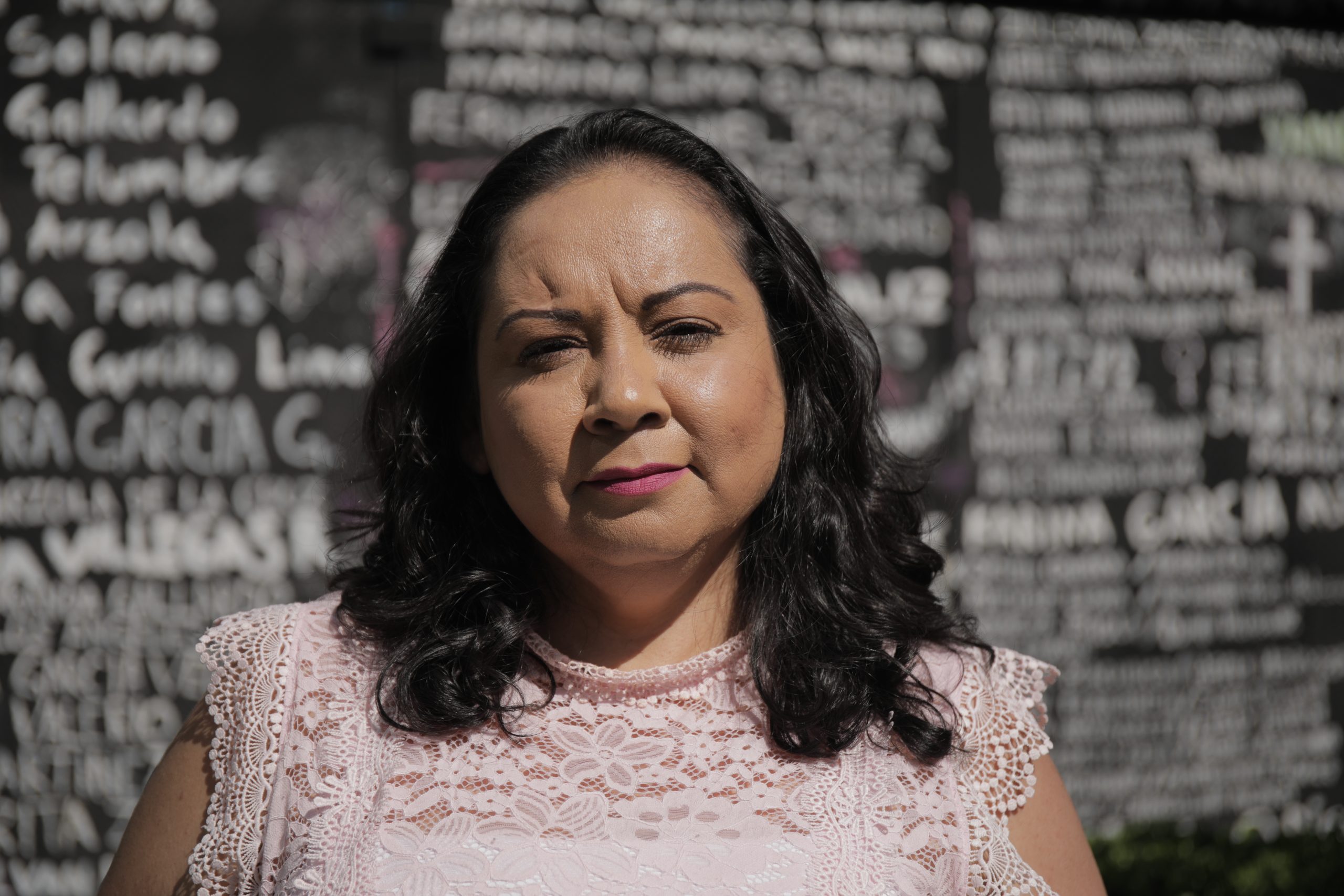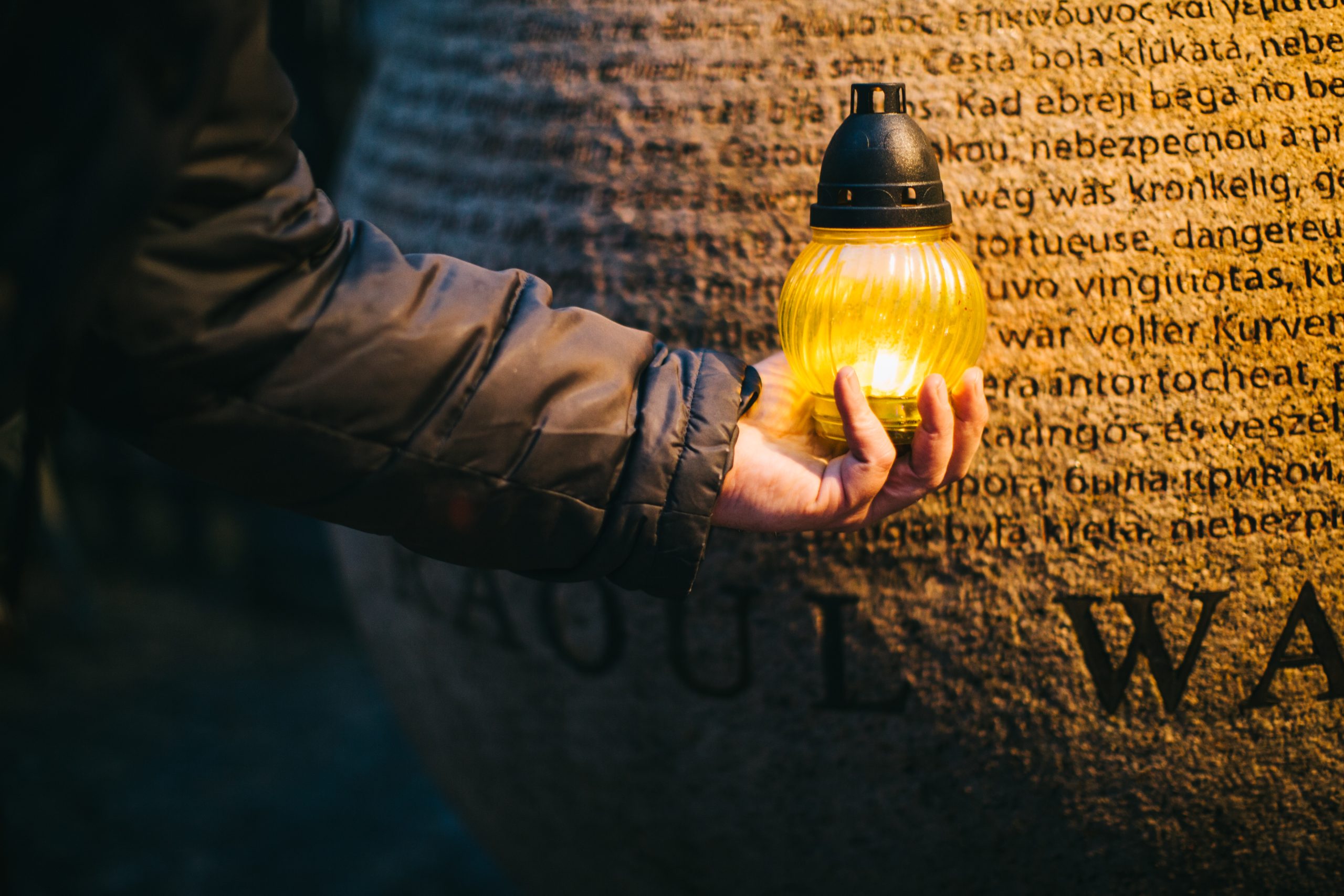2023: Malú García Andrade
Malú García Andrade demands justice for disappeared and murdered women in Mexico. For over 20 years, she has demanded that judicial authorities and lawmakers take crimes against women seriously, that the murders are investigated, and that those responsible are punished.

Malú García Andrade. Photo: Cristopher Ordoñez
Meet Malú García Andrade

”They were single mothers seeking justice, but nobody would listen. It made me angry and upset – and I was determined to demand that their rights should be respected.”
Facts about the Prize winner
María Luisa (Malú) García Andrade is 43 years old and was born in Ciudad Juárez in the state of Chihuahua in Mexico.
She has founded and leads the support organisation “Bring our Daughters Back Home” (Nuestras Hijas de Regreso a Casa, NHRC), for families who fight for their disappeared, violated, and murdered daughters.
Human rights defender and lawyer Malú García Andrade from Ciudad Juárez in Mexico support the families of disappeared and murdered daughters. She demands that murders of women are investigated and those responsible brought to justice.
Malú García Andrade heads a support organization for families seeking justice for their disappeared and murdered daughters. For over 20 years, she has demanded that judicial authorities and lawmakers take crimes against women seriously, that the murders are investigated, and that those responsible are punished.
In February, 2001, the prize winner’s own sister was murdered. During several years, her family demanded justice and redress, but in vain. Mexico is a country steeped in patriarchal structures and marked by corruption. On average, ten women and girls are murdered every day. Many of these are femicides – the murder of women simply because they are women.
Since the death of her sister, Andrade has kept the struggle alive. She has represented hundreds of families against authorities that have been unwilling or unable to bring perpetrators to justice. Today, she is one of the prominent figures of the Mexican human rights movement in the work against femicide.
The prize winner and her family have repeatedly been subjected to death threats and attempts to kill or kidnap them. They now live with bodyguards and protected identities.
The jury’s motivation
María Luisa García Andrade shows enormous courage in her fight for all the women who have disappeared and been murdered in Mexico. In an extremely violent environment, she demands that the state investigates femicides and that the guilty are sentenced. She works tirelessly to provide support for affected families, pushes for legal reforms, and refuses to give up even after she and her family have been forced to live in hiding. Her determination and unconditional courage is inspiring and provides hope for change.
Nine international organisations participated in the nomination work for this year’s Per Anger Prize: Afrikagrupperna, Amnesty International, Civil Rights Defenders, Diakonia, The Kvinna till Kvinna Foundation, IM – Swedish Development Partner, Save the Children, We Effect and the Church of Sweden.
Interview
When did you realise you wanted to work for disappeared and murdered women in Mexico?
My sister was murdered in February 2001. After that, my mother started a campaign to draw attention to the murders of women in Juárez while I took care of my murdered sister’s children. They were 6 and 18 months old at the time. Some years later I went to Mexico City with a group of victims’ families. They were single mothers seeking justice, but nobody would listen. It made me angry and upset – and I was determined to demand that their rights should be respected.
How has losing your sister affected your work?
It has made me realise that families need help. I would have liked to have a Malú to help us search for my disappeared sister. Maybe we could have found her alive, or at least delivered justice for her.
How would you describe the situation when it comes to the murder of women, femicide, in Mexico today?
There is widespread impunity for the perpetrators, despite efforts to enact laws to prevent that. As long as perpetrators are protected by impunity, women will not be able to live their lives without being subjected to violence.
What is your biggest professional challenge?
One of my most important challenges is to create awareness and empathy within the authorities, so that they are incentivized to treat the families well, and to want to carry out their work correctly.
In your opinion, which work procedures deliver the best results?
First and foremost, families’ awareness of legislation and their rights must be increased. It is my goal in each case to establish a task force where authorities participate with the responsible ministry, civil servants and prosecutors. The task force should inform the family and monitor the investigation.
What are the biggest changes you have noticed these last few years?
We used to see single mothers searching for justice, but now we see whole families fighting together for their rights and looking for their sons and daughters. The families have realised that they will get farther together than if they are fighting one by one.
What would you like to say to young people in Mexico?
That it is important to have empathy with stricken families. If young people feel empathy, we won’t have only one defense attorney, but a whole community fighting for families’ rights. I want to tell them that we can change our lives. I want to remind them that respect for our rights starts in our homes and in our close environment.
What is your most important message about what needs to be done?
Women are murdered and disappeared all over the world, but Mexico stands out because of the impunity that follows. The authorities simply lack the will to solve the crimes. This is why Mexico must bring to justice the authorities responsible for investigating the crimes.
What does the Per Anger Prize mean for your struggle?
The prize is a huge honour for me. I count on the prize contributing to improving my safety as a defense attorney. If I would have lived at the same time as Per Anger, I would have fought by his side to save those in danger. And had he been alive today, I would have invited him to my country to fight for families’ rights.
Have you feared for your life and thought about leaving Mexico to do something else?
Yes, I have been threatened and thought about winding down my work and seeking asylum in some other country, for my children’s sake. But then I think about how there are not enough defense attorneys in my country to guide families, and I am reminded that this is not the right time to leave.
This year’s prizewinner was nominated by Amnesty International Sweden.
Facts on femicide
In the year 2020, 3,723 women and girls were murdered in Mexico, both by strangers and known assailants. Of these, 940 were investigated as femicides. See the report from Amnesty International.
“Femicide” is a term used to describe systematic abuses and murders committed against women exclusively because they are women. In Mexico, the murder of women is widespread, and the word “femicide” is used there to classify these crimes separately from other murders.
The criteria necessary for a crime to be classified as a femicide are murders committed in combination with sexual violence, mutilation or desecration of the body, previous threats and violence, a confidential relationship with the perpetrator, and if the victim has been held in isolation or her body exposed in public. See the report from Amnesty International.



